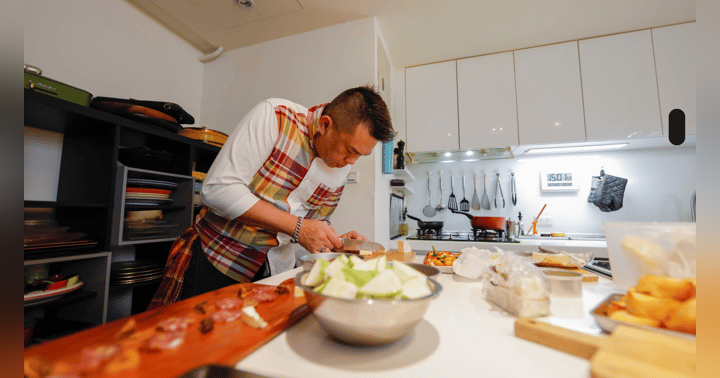Reducing Food Waste in Hospitality: Practical Steps & Resources

In today’s world, minimising food waste is a critical responsibility for UK hospitality. With food waste costing the sector around £682 million annually, according to WRAP (Waste and Resources Action Programme), hospitality businesses are under pressure to cut waste and conserve resources. Food surplus doesn’t just affect the bottom line – it also contributes to greenhouse gas emissions, with each tonne of food waste producing an estimated 4.5 tonnes of CO2.
In an early episode of the Talking Hospitality podcast, guest Dee Vadukal from Plan Zheroes, a food redistribution charity, discussed how they help businesses donate surplus food to charities in real-time.
While Plan Zheroes provides a great example, other UK organisations are stepping up to help the industry address food waste. Here’s an overview of the landscape and practical steps for businesses looking to make impactful changes.
1. Partner with Food Redistribution Networks
The UK has a wealth of organisations ready to help hospitality businesses redistribute surplus food. Here are a few to consider:
-
FareShare: This charity works with the food industry to rescue good quality surplus food, distributing it to nearly 9,500 charities and community groups nationwide. Hospitality businesses can quickly set up partnerships with FareShare, allowing them to redistribute surplus directly to those in need. Learn more at FareShare.
-
The Felix Project: Based in London, The Felix Project redistributes surplus food to frontline charities and schools. For businesses within London, this is an effective way to ensure surplus food supports local communities. Explore partnerships with The Felix Project.
-
FoodCycle: FoodCycle combines surplus food with volunteers to create free community meals. Hospitality businesses can donate ingredients to help FoodCycle provide meals to those facing food insecurity. Find out more about FoodCycle.
By partnering with these networks, businesses can reduce landfill waste, address hunger, and strengthen their local community ties.
2. Conduct Regular Food Waste Audits
A food waste audit is a critical first step toward understanding where waste occurs and identifying areas for improvement. Track metrics across procurement, storage, kitchen preparation, and leftovers. Many businesses find that audits reveal specific high-waste items or inefficiencies in ordering processes.
Platforms like Leanpath offer digital food waste tracking systems that capture data on waste and generate reports, helping kitchens make informed decisions about stock and portion sizes. According to Leanpath, businesses that implement waste tracking often see up to a 50% reduction in food waste within the first year.
3. Rethink Menu Planning to Minimise Waste
Menu engineering – designing a menu around minimal waste – is a powerful tactic. Consider using seasonal ingredients that can be sourced locally to reduce environmental impact. Additionally, think about flexible ingredients: those that can be used across multiple dishes help reduce spoilage.
For example, “root-to-stem” and “nose-to-tail” cooking techniques ensure that as much of each ingredient as possible is used, reducing waste while appealing to sustainability-conscious diners. Many restaurants also offer “small plate” options, which allow customers to sample dishes without committing to large portions that may go unfinished.
4. Engage Your Staff in Sustainability Training
Staff engagement is crucial in any sustainability effort. Encourage your team to actively participate in waste reduction practices through training. WRAP’s Guardians of Grub programme provides free resources and training tools that can help hospitality workers understand the importance of food waste reduction and the role they play in achieving it.
Training staff to manage stock effectively, rotate ingredients, and optimise portion sizes can have a significant impact. Moreover, involving your team in waste-reduction goals fosters a sense of ownership and responsibility toward sustainability initiatives.
5. Offer Guests the Choice to Contribute
More consumers today want to support businesses that are eco-conscious. By being transparent about your sustainability efforts and engaging guests, you can make waste reduction a shared mission. Here are some ways to involve customers:
-
Informative Signage: Display information about your partnerships with charities like FareShare or Plan Zheroes, letting guests know their visit supports food redistribution efforts.
-
“Pay-As-You-Feel” Dishes: Inspired by The Real Junk Food Project, some restaurants offer “pay-as-you-feel” options for certain dishes, enabling diners to contribute toward food-waste initiatives directly.
-
Takeaway Partnerships: Offering reusable containers for leftovers encourages diners to reduce waste by taking surplus food home rather than discarding it. For example, the Too Good To Go app allows restaurants to sell surplus food at a discounted price, preventing food from being thrown away.
Conclusion: Building a Sustainable Future in Hospitality
Tackling food waste in hospitality requires a multifaceted approach, from partnering with redistribution charities to engaging both staff and guests in the mission.
As Dee Vadukal from Plan Zheroes highlighted in Talking Hospitality, “There’s always someone who can use what would otherwise be wasted.”
It’s a call to action for the entire hospitality sector to adopt these practices, benefiting both the environment and communities.
By implementing these steps, UK hospitality businesses can make real progress toward sustainability, align with customer values, and support the communities they serve.




